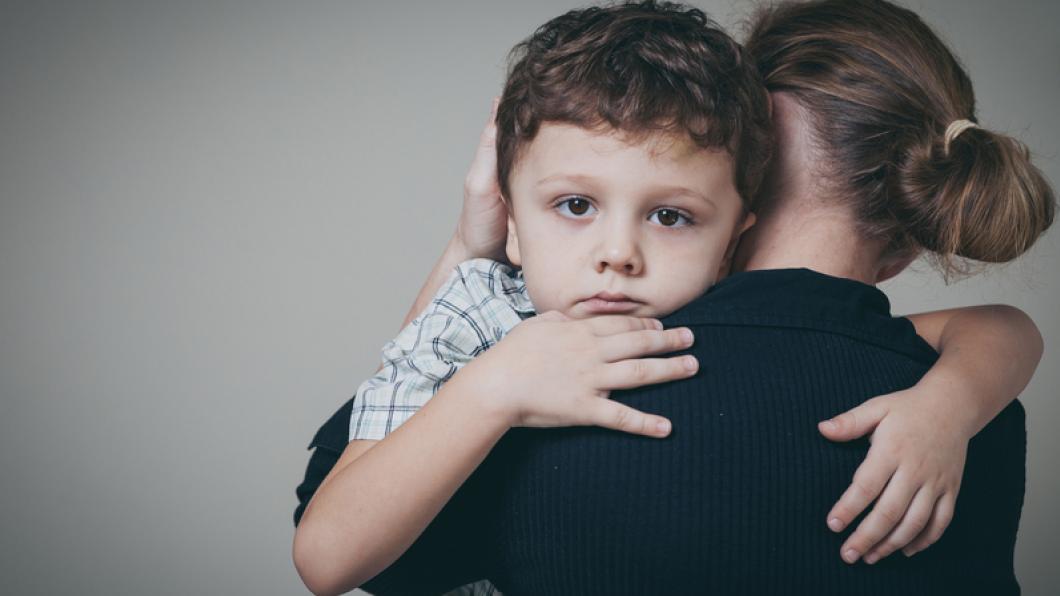
Children's rehab can trigger painful parent emotions
By Louise Kinross
Canadian parents said the experience of getting health care for their disabled child was emotionally challenging.
In a new study in Research in Developmental Disabilities, 50 of 65 parents in 13 focus groups recounted 106 negative emotions they experienced in children’s rehab, and only seven shared positive emotional experiences. Emotions are intense, short-term feelings caused by an external event or ongoing situation. For example, parents who couldn't obtain services for their child or found providers unhelpful felt angry and frustrated. Negative emotions were 14 times more common than positive ones.
The parents were asked to describe their experiences with both good and inadequate care as part of an effort to update a survey on family-centred care. The focus groups were not designed to elicit negative responses, however, parents may attend focus groups when they feel they have something important to say.
“When reading the transcripts, our team was really disheartened and dismayed,” says lead author Gillian King, a distinguished senior scientist at the Bloorview Research Institute. “Over three quarters mentioned at least one negative emotional experience. There are parents having highly frustrating and traumatizing experiences that are harmful. We can’t rest on our laurels with the rhetoric about how we’re family-centred, because there’s a lot more work to be done on that journey.”
In order of frequency of mention, the parents’ negative emotions were categorized as stress, frustration, trauma, upset, anger, emotional exhaustion and fear. The most common positive emotion was gratitude.
“We know about the stress, the frustration and the exhaustion of families,” King says. “What we found in this study that was quite new was the trauma, upset and anger. That hasn’t been demonstrated in the literature before.”
Researchers identified four situations that triggered negative emotions in parents.
The first was unwanted responsibilities. These included home therapy tasks; having to chase down providers and coordinate care; being responsible for transferring medical files; and advocating. One parent said: “There’s far too much dumped on the parents...” Another talked about having to “fight” for everything.
“We know from the literature that parents have so much on their shoulders as we’ve moved to a consultative model and the work is pushed down to parents,” King says.
The second trigger for negative emotions was waiting for services and appointments. “What struck me was the breadth of the waiting issues,” King says. “It wasn’t just waiting to be referred or to get the service. It was waiting at a scheduled appointment. You’ve taken time off work, may have spent hours to get there, and are worried about parking. You and your child may be highly anxious about what’s going to happen at the appointment. Then, having to sit and wait for an unreasonable amount of time, while your child may be upset, feels so disrespectful. And it’s waiting across the board. Waiting for funding. Waiting for everything.”
The third situation that led to painful emotions was not being listened to or having your concerns dismissed. “She has never, ever listened to a word we have to say,” one parent said about their pediatrician.
"The implications of not being fully present or attentive to the parent are far-reaching, as they include medical errors, wasted time, inappropriately targeted treatments and care plans, mistrust, and poor relationships," King says.
The final trigger for distress in parents was being treated disrespectfully. This included being called “emotional;” being blamed for their child’s behaviour; and having a devastating diagnosis delivered abruptly by clinicians who promptly left parents alone in a room with no support.
“It was eye-opening to the investigators to hear the extent of parents’ negative emotional experiences, which indicated that a lack of family-centred service still permeates pediatric health care…” the researchers write.
They note that situations that create negative emotions in parents can interfere with a parent's motivation, ability to listen and engage, and sense of efficacy. “…Negative emotions can restrict people from seeing the possibilities in a situation, which is important in health care,” they write.
The researchers hope their study promotes awareness “of the unintentional impact of [provider] behaviour on parents,” they write.
“I think a lot of it is unintentional, and results from system constraints and expectations,” King says. “I’d like to see much more direct, hands-on care for certain parents who really need it; reducing waiting times; and recognizing the importance of listening and being responsive and not making parents repeat things. I’d also love to see clinicians have more autonomy and decision power around the length of their appointments, within reason. We also need more training so that providers understand the impact of a careless remark, which can sit with a parent forever. I think there was a lot of staff turnover during Covid, and a lot of senior mentors left. We need more training for novice people.”
King and her team have a number of papers related to family-centred care in press. Another project will make summaries about family-centred care culturally sensitive and available in a variety of languages for immigrant parents.
Like this content? Sign up for our monthly BLOOM e-letter, follow BLOOM editor @LouiseKinross on X, or @louisekinross.bsky.social on Bluesky, or watch our A Family Like Mine video series.